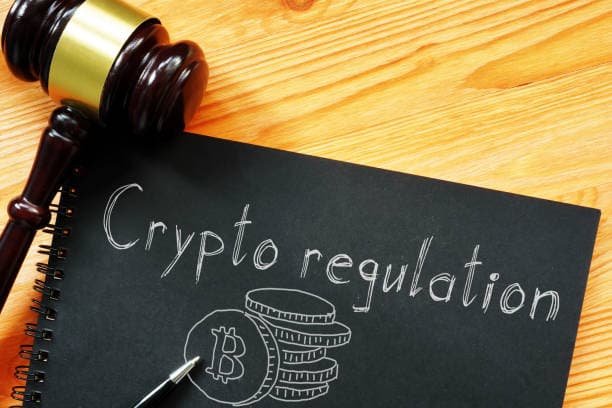How do digital currency exchanges protect privacy? Security
As digital currency trading becomes more and more emphasized, how to protect users' privacy and transaction security has become an important issue that major exchanges must face. Many exchanges have invested a lot of resources to improve the security of their platforms and have taken a series of measures to ensure that users' information will not be leaked during the cryptocurrency trading process. In this article, we'll take a closer look at how digital currency exchanges protect user privacy and data security, give you an idea of what to look for when choosing a platform, and offer some practical advice on how to improve the security of your personal assets.

Basic Principles of Privacy Protection for Digital Currency Exchanges
Digital currency exchanges usually follow some basic privacy protection principles in order to protect the privacy of their users. Exchanges will minimize the collection of personal information from users and only ask for the most basic information, such as email addresses and identification information. This not only helps to simplify the registration process for users, but also reduces the risk of attacks. Most exchanges utilize encryption to protect sensitive user data such as account passwords and transaction history. These encryption methods greatly reduce the likelihood of a successful hacker attack and ensure the security of data transmission during the trading process.
Multi-authentication mechanism for digital currency exchanges
Many digital currency exchanges require users to enable multiple authentication (2FA) in order to enhance security. This usually includes a traditional account password and a dynamic password (e.g. a 6-digit code generated using Google Authenticator). Even if a hacker obtains a user's account password, they will not be able to access funds without successfully passing the second level of authentication. This mechanism significantly enhances account security and prevents loss of assets due to leakage of a single password. It is important to note that users should choose stronger authentication methods and update their passwords regularly to maximize the protection of their privacy.
How to encrypt user information? Technical Measures of the Exchange
In digital currency exchanges, how to encrypt user information is also a crucial issue. To ensure the security of user information, most exchanges use high-level encryption technology, such as the SSL/TLS protocol, to encrypt all data transmission between the website and users. This not only prevents data from being eavesdropped on during transmission over the Internet, but also prevents hackers from tampering with the data. The exchange's internal database is also encrypted and stored to further prevent unauthorized access or leakage of user information.
End-to-end encryption is a common technique used to ensure that every piece of transaction data is encrypted during the transaction process. Even if the transaction data is intercepted, it cannot be easily decrypted. Therefore, users should choose a trading platform that supports end-to-end encryption to ensure the security of the transaction process.
Compliance Requirements to Protect User Privacy
In addition to technical security measures, many digital currency exchanges comply with local laws and regulations to further protect user privacy. In Taiwan, exchanges are required to comply with the FSC's anti-money laundering regulations and conduct proper KYC (Know Your Customer) and AML (Anti-Money Laundering) processes, which help identify and prevent illegal activities. These regulations pose some challenges to privacy protection, as in some cases platforms are required to collect personally identifiable information from users.
Nonetheless, in order to balance compliance with privacy protection, many exchanges offer encrypted authentication systems to ensure that data is not leaked after it has been collected. Users can choose to provide the necessary information within reason, while protecting the privacy of other information.
Security mechanisms to prevent fraud and hacking attacks
Hacking and fraud are common risks in the digital currency space, so exchanges must have multiple defenses against these issues. Many exchanges conduct risk management, including occasional security checks, monitoring for unusual trading behavior, and setting transaction limits to minimize the risk of theft. For user asset protection, some platforms also offer cold wallet storage, where the majority of funds are stored in a completely offline environment to prevent remote hacking.

Many exchanges also have anti-fraud systems in place to monitor suspicious behavior and alert users to possible fraud traps in a timely manner. For example, if a user's account undergoes an unusual login or transaction, the platform will immediately send a security alert and request additional verification to avoid asset theft.
How to Choose a Secure Digital Currency Exchange?
When choosing a digital currency exchange, security should be the primary consideration. Users can focus on the following aspects when choosing:
- Platform security and compliance: Choose an exchange that has been licensed by your local government and adheres to international security standards.
- Multi-Security: Check whether the platform provides multiple authentication and encryption technologies.
- User Feedback and Evaluation: Find out how trustworthy and safe the platform is by checking the reviews of other users online.
- Funding Protection Mechanism: Whether or not funding protection measures such as cold wallet storage and insurance programs are provided.
For example, exchanges like OKX place great emphasis on security, and in addition to providing multiple layers of security, they also have a professional risk management system that effectively protects against all types of security threats.
Frequently Asked Questions Q&A
Q1: How does a digital currency exchange ensure that my transactions are not monitored?
A1: Most exchanges use advanced encryption to protect your transaction data, including end-to-end encryption and SSL/TLS protocols to ensure that the transaction process is not monitored from outside.
Q2: Can I prevent all hacking attacks by using multiple authentication?
A2: Although multi-authentication can significantly improve account security, no system can guarantee 100% security. To better protect your assets, you should also update your passwords regularly and watch out for unusual account behavior.
Q3: Will my funds be protected if there is a hacker attack on the exchange?
A3: Many exchanges store a large portion of their funds in cold wallets and offer a capital protection program for their users. In the event of a hacking attack, exchanges are usually partially responsible and may offer insurance coverage.
We hope this article has helped you understand how digital currency exchanges protect privacy and security, so you can feel more comfortable when trading. If you have any other questions, please feel free to ask!














